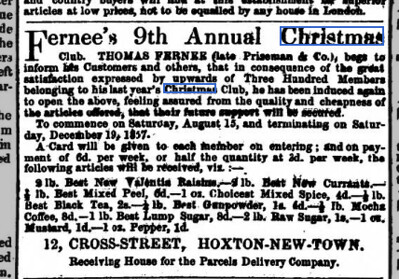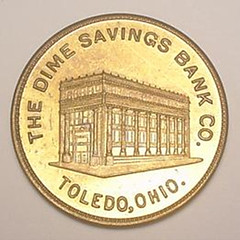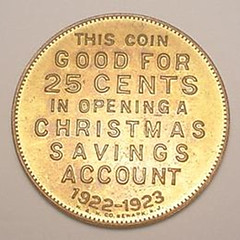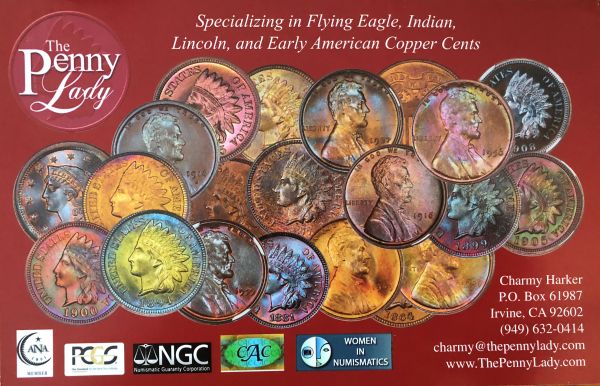
PREV ARTICLE
NEXT ARTICLE
FULL ISSUE
PREV FULL ISSUE
V25 2022 INDEX E-SYLUM ARCHIVE CHRISTMAS CLUB TOKENSDavid Pickup submitted this seasonal article about Christmas Club Tokens. Thank you! -Editor
Paying for Christmas Goodies: The Rise and Fall of Christmas Club Tokens
Christmas Clubs feature in one of my favourite Sherlock Holmes stories "The Adventure of the Blue Carbuncle". That is about a valuable gem which is found inside a goose, which had been dropped by its owner during an altercation. The owner of the goose had joined a Goose clubs are first mentioned in the 1840s, fifty years before the Holmes story was written in the 1890s. There were also beef clubs and then general clubs for Christmas groceries. They were a way of saving for poor people who would not have access to banks. The typical payments were 6d or 3d for twenty weeks before Christmas. The pubs, butchers and shops benefitted because the customer had to buy their goods from that business. The goose had always been a popular meal at Christmas time since the reign of Elizabeth I. It was still a luxury for most people unless they belonged to a Goose Club. The Temperance Movement, which advocated for total abstinence from alcohol, challenged Goose Clubs which were thought to encourage overspending on the demon drink. 'Goose-Clubs ... are held at hundreds of the public-houses in London. The members pay a shilling a-week for eight or ten weeks before Christmas, and, in addition to a goose, are generally entitled to a bottle of gin for their ten shillings.' The Salvation Army also tried to support the poor by holding annual clothing and blanket drives, sold life insurance, and owned a savings bank during the 1880s. These Christmas Clubs were sometimes criticised as they only offered low interest rate and there were cases where the treasurer defaulted. In the 1850s some publicans were concerned that such clubs were illegal. It is not clear why. This newspaper cutting from August 1857 shows how these schemes worked. This is an interesting cutting from the Litchfield Mercury in the 1980s. The text is difficult to read but is This small token brought memories flooding back for Litchfield pensioner John Brookes. For Mr Brookes who lives in Stychbrook Gardens can remember saving up the token that he dug up in his garden to exchange for groceries at Christmas. The 6d token was issued by Sykes Grocery, Sykes Family Grocers, who had a shop in Tamworth Street in Litchfield 50 years ago.
The tokens saved up through the year towards a Christmas Club, were exchanged for seasonal goodies. It is interesting that the items is referred to as a Christmas Club Check. That word is not used commonly in the UK for a token. I have not found any later articles from that newspaper on this subject to say if readers had memories of these. In America Christmas Clubs were popular especially during the Great Depression. Here is an excellent photograph of one. It looks a lot grander than its British counterpart. The portrait of the bank is intended to demonstrate reliability and security with its classical columns. The Dime Bank was incorporated 1900 and later merged with the Ohio Savings Bank and Trust, which failed during the Great Depression. An article on the subject says the idea was started in 1909 when Merkel Landis the treasurer of the Carlisle (Pennsylvania) Trust Company began a Christmas savings fund . In the first year 350 people saved about $28 dollars each. Some banks targeted children to teach them to save. (I wonder how that went!). The checks or tokens were incentives to start saving money, to advertise the scheme or possibly the money was paid in tokens so the customer was tied to the shop's produce. There was public concern that low interest rates were paid, if at all, and some places charged customers to withdraw money, especially if they did not complete the full programme. Christmas savings schemes are less popular in the UK now. Buying on credit became more freely available for everyone including people on low incomes. A large savings scheme defaulted in 2006, when Christmas savings club Farepak failed, leaving 100,000 customers who had saved an average of £400 out of pocket. They only got about half of their cash back, and it took them six years. Money paid into these schemes is not protected like most bank deposits. There is now a voluntary trade code of practice in the UK where savings are ring fenced. Perhaps these clubs will become more popular again with economic difficulties? At the end of the Sherlock Holmes story, the detective is in a forgiving mood Send him to gaol now, and you make him a gaol-bird for life. Besides, it is the season of forgiveness. Chance has put in our way a most singular and whimsical problem, and its solution is its own reward. If you will have the goodness to touch the bell, Doctor, we will begin another investigation, in which also a bird will be the chief feature. It is the season of forgiveness and generosity so have a Happy Collecting Christmas! Acknowledgments Thanks to Wayne Homren, the publishers of the Litchfield Mercury/BPM Media and • Charles Dickens and the Victorian Christmas feast by Simon Callow. British Library https://www.bl.uk/romantics-and-victorians/articles/a-victorian-christmas-feast • N. Wahl. Image used by kind permission of tokencatalog.com • Reback, M, "Join the Christmas Club" The Numismatist (December 2006 p 5
Wayne Homren, Editor The Numismatic Bibliomania Society is a non-profit organization promoting numismatic literature. See our web site at coinbooks.org. To submit items for publication in The E-Sylum, write to the Editor at this address: whomren@gmail.com To subscribe go to: https://my.binhost.com/lists/listinfo/esylum All Rights Reserved. NBS Home Page Contact the NBS webmaster 
|




